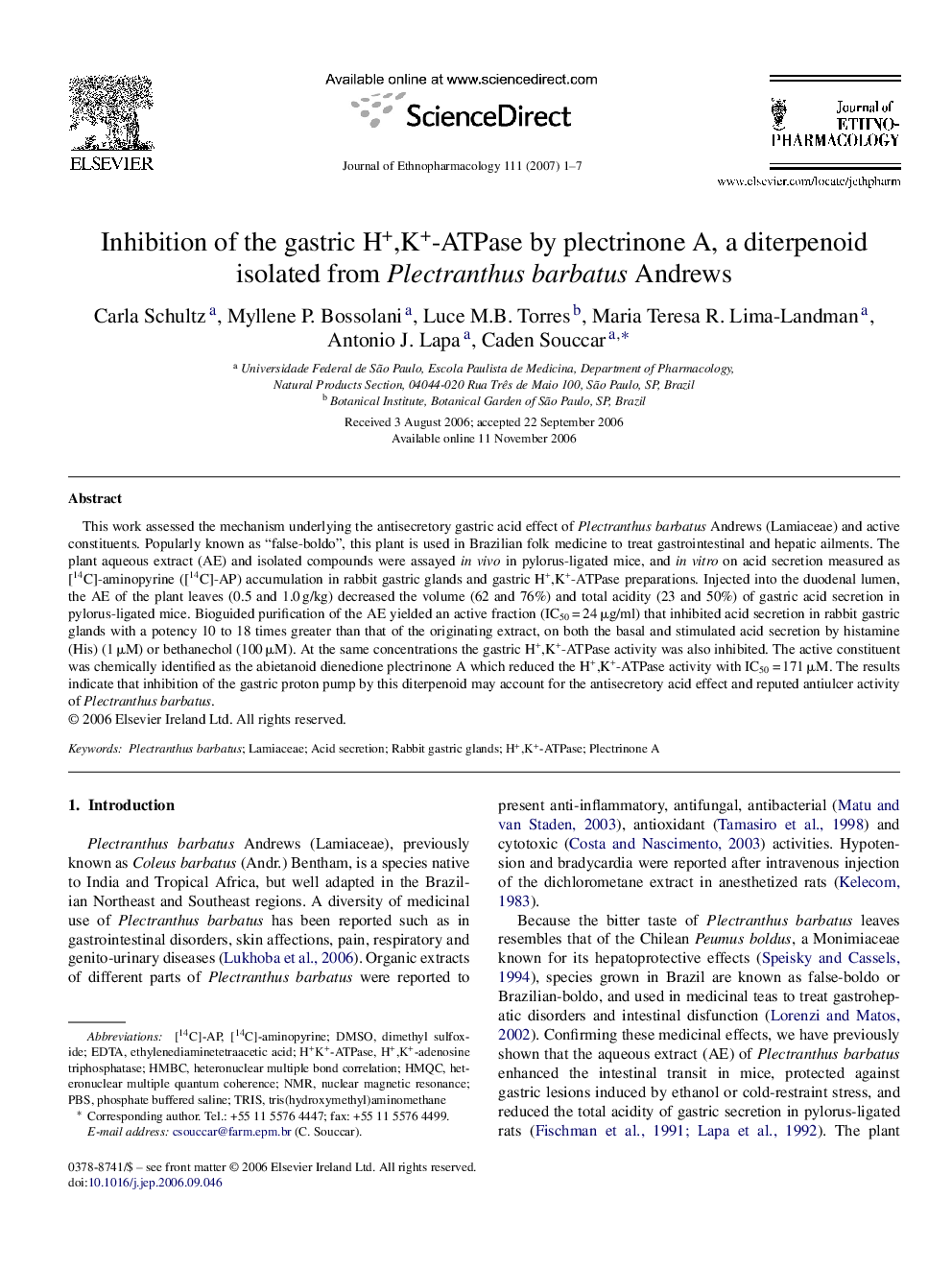| Article ID | Journal | Published Year | Pages | File Type |
|---|---|---|---|---|
| 2548264 | Journal of Ethnopharmacology | 2007 | 7 Pages |
This work assessed the mechanism underlying the antisecretory gastric acid effect of Plectranthus barbatus Andrews (Lamiaceae) and active constituents. Popularly known as “false-boldo”, this plant is used in Brazilian folk medicine to treat gastrointestinal and hepatic ailments. The plant aqueous extract (AE) and isolated compounds were assayed in vivo in pylorus-ligated mice, and in vitro on acid secretion measured as [14C]-aminopyrine ([14C]-AP) accumulation in rabbit gastric glands and gastric H+,K+-ATPase preparations. Injected into the duodenal lumen, the AE of the plant leaves (0.5 and 1.0 g/kg) decreased the volume (62 and 76%) and total acidity (23 and 50%) of gastric acid secretion in pylorus-ligated mice. Bioguided purification of the AE yielded an active fraction (IC50 = 24 μg/ml) that inhibited acid secretion in rabbit gastric glands with a potency 10 to 18 times greater than that of the originating extract, on both the basal and stimulated acid secretion by histamine (His) (1 μM) or bethanechol (100 μM). At the same concentrations the gastric H+,K+-ATPase activity was also inhibited. The active constituent was chemically identified as the abietanoid dienedione plectrinone A which reduced the H+,K+-ATPase activity with IC50 = 171 μM. The results indicate that inhibition of the gastric proton pump by this diterpenoid may account for the antisecretory acid effect and reputed antiulcer activity of Plectranthus barbatus.
